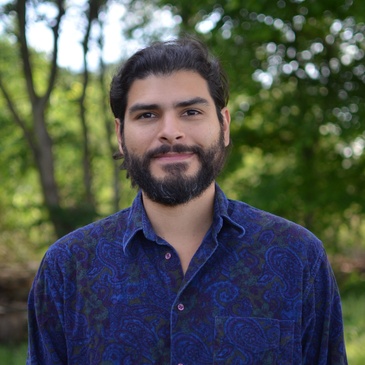Dánnell Quesada [ ˈdanel keˈsaða ] works as researcher in the group Inter-Sectoral Impact Attribution and Future Risks. His research focuses on bias-correction and downscaling techniques of climate projections, particularly for the Inter-Sectoral Impact Model Intercomparison Project (ISIMIP). His research interests include:
- Biodiversity
- Extreme weather
- Compound events
- Machine learning
Contact
14412 Potsdam
ORCID
I studied Civil Engineering, with an emphasis in hydrology and hydraulic engineering, at the Universidad de Costa Rica, where I obtained my Licentiate degree in 2014. I worked for 3 years in the renewable energy consultancy sector, where I developed a keen interest in the implications of climate change, particularly on energy production and biodiversity. In 2016, I received a DAAD scholarship to pursue a Master's degree in Hydro Science and Engineering at the TU Dresden. My master's thesis dealt with downscaling of climate projections for Costa Rica through machine learning.
In 2020, I was awarded a joint schorlarship from the European Social Fund (ESF) and the Federal German state of Saxony for my doctoral project, to develop a deep learning algorithm that downscaled a multivariate dataset to a daily 1 km ensemble for Saxony. I then used this dataset to predict the future distributions of certain endangered species. I joined PIK in 2023 as part of the research group Data-centric modeling of cross-sectoral climate impacts.
Articles
- Quesada-Chacón, D., Baño-Medina, J., Barfus, K., & Bernhofer, C. (2023). Downscaling CORDEX through deep learning to daily 1 km multivariate ensemble in complex terrain. Earth’s Future, 11(8), e2023EF003531. https://doi.org/10.1029/2023EF003531
-
Quesada-Chacón, D., Barfus, K., & Bernhofer, C. (2022). Repeatable high-resolution statistical downscaling through deep learning. Geoscientific Model Development, 15(19), 7353–7370. https://doi.org/10.5194/gmd-15-7353-2022
- Harder, P., Jones, W., Lguensat, R., Bouabid, S., Fulton, J., Quesada-Chacón, D., Marcolongo, A., Stefanović, S., Rao, Y., Manshausen, P., & Watson-Parris, D. (2020). NightVision: Generating Nighttime Satellite Imagery from Infra-Red Observations (arXiv:2011.07017). arXiv. http://arxiv.org/abs/2011.07017
- Quesada-Chacón, D., Barfus, K., & Bernhofer, C. (2020). Climate change projections and extremes for Costa Rica using tailored predictors from CORDEX model output through statistical downscaling with artificial neural networks. International Journal of Climatology, April, 1–22. https://doi.org/10.1002/joc.6616
- Climate modelling module, TU Dresden
- 2020-2021
- CDO installation and use: repository and slides
- Introduction to spatial data with R, TU Dresden
- 2021-2022, slides






